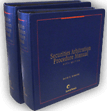The Defense Perspective
Similar to the way procedural and regulatory differences affect how elderly customers can seek restitution through the FINRA arbitration program, cases involving elderly claimants present different challenges to defense counsel as well.
An Appreciation of the Subject by Two Leading Defense Attorneys
In their 2008 PLI course book chapter, “Respect Your Elders: A Survey of the Rules and Laws that Apply to Claims Brought by Senior Investors” [1] Bradford D. Kaufman and Jon A. Jacobson, shareholders at Florida defense firm Greenberg Traurig, discussed unique issues that arise when litigating sales practice claims brought by senior investors. They examined whether the regulators’ pronouncements have effectively created new or different standards when it comes to dealing with seniors. They also provided a general overview of some of the statutory laws that have been enacted specifically to protect seniors and how such laws might be applied to senior investors. They report these staggering statistics:
· Approximately 5 million senior citizens become victims of financial abuse and fraud each year.
· An estimated 44% of all investor complaints received by state securities regulators are made by seniors and 31% of all enforcement actions taken by state securities regulators involve senior investment fraud.
· From January 2005 through August 2007, FINRA completed approximately 100 formal disciplinary actions involving or related to seniors. In September 2007, FINRA had approximately 70 open investigations that involve seniors or senior-related issues.
Kaufman and Jacobson then asked and answered this question: are there industry rules that apply to senior investors? No, but FINRA has implemented specific measures to expedite the administration of arbitration involving elderly or seriously ill parties.
Additionally, in September 2007, FINRA published Regulatory Notice 07-43, announcing on its first page one of its priorities “is the protection of senior investors, as well as Baby Boomers who are at or approaching retirement.”[2] It looked at the suitability of recommendations to and communications aimed at older investors.
They then looked carefully at Footnote 5 of the Notice to Members, finding the possibility that FINRA is asking firms to pay special attention to a customer’s age when recommending a security while adhering to the know your customer rule:
“A broker must refrain from making an unsuitable recommendation even if the customer expressed an interest in engaging in the inappropriate trade or asked the broker to make the recommendation.”
With this footnote, FINRA seems to be suggesting for the first time that “objective” criteria (e.g., net worth, age, etc.) can trump “subjective” criteria (e.g., a customer’s stated investment objective or risk tolerance) when a firm conducts its uniform suitability analysis. Stated another way, notwithstanding FINRA’s earlier suggestion that suitability is a relative concept that can be properly evaluated only in a context, Footnote 5 suggests that there might be some objective threshold beyond which an investment will be deemed unsuitable regardless of the context or what the customer tells the firm.
The authors then highlighted FINRA’s reminder to its members that a customer’s net worth alone is not determinative of whether a particular investment is suitable.
“The practical effect of this observation is that FINRA Regulatory Notice 07-43 downplays one of the suitability criteria that firms are specifically required to consider under industry rules (financial status) and adds-indeed, emphasizes-two new suitability criteria that have never before been expressly singled out under industry rules for special consideration (age and life stage). In sum, while all suitability criteria are equally important, it appears that some criteria-age and life stage-might be more equally important than others.”
Registered representatives and broker/dealers faced with a claim from an elderly customer must consider the different standards in effect during arbitration. Seeking advice and counsel from attorneys experienced in this area of law is the first step in assuring that you’re putting forth the best defense possible.
[1] Footnotes in the quoted PLI and PIABA articles are not included in this article, but can be found in Section 5-5[a] of Securities Arbitration Procedure Manual.
[2] FINRA Regulatory Notice 07-43 at 1. This Notice is attached in full to this article.


